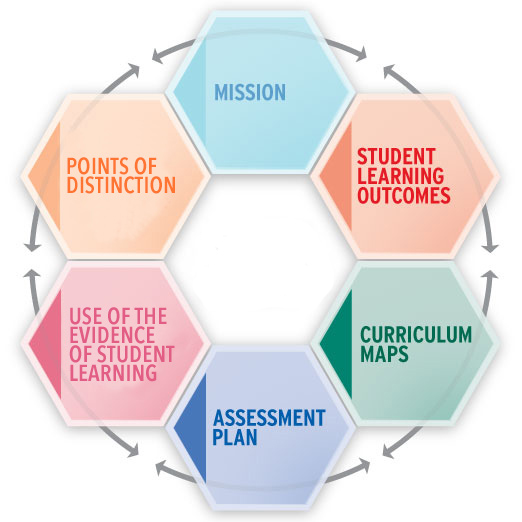The Department of Communication Studies equips students with the knowledge, skills, and experience necessary to become effective communicators in today’s rapidly evolving media landscape. Through diverse majors and minors, students collaborate with creative peers and inspiring faculty to refine their ability to express ideas clearly and confidently across both traditional and modern platforms.
PLNU engages its faculty, staff, and students in an annual assessment cycle, where student learning is evaluated through appropriate courses, assessment results are analyzed, and necessary adjustments are made to improve the curriculum.
This complete process—encompassing planning, assessment, and improvement—is commonly referred to as “Closing the Loop.” It is illustrated in the Annual Assessment Cycle for each curricular program and culminates in a comprehensive six-year Program Review. This review includes a Memorandum of Understanding (MOU) and Action Plan, through which assessment findings directly inform financial and strategic planning.
